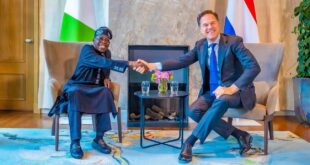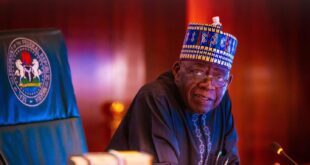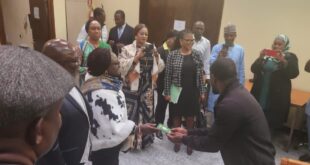There is a resurgence of a once forgotten infirmity in West Africa, writes Steve Ogah, as he comments on the increasing spate of military interruption of democratic governance in the sub region.
Once, on the rise to the pinnacle of some of the finest ethos of democracy, the West African sub region is now fast backsliding into the dark and infamous days of military gangsterism and jackboot politics.
This new wave of its political malady was only recently sighted on 5 September, 2021, when Col. Mamady Doumbouya of Guinea’s elite military force truncated his country’s democracy through the barrel of the gun.
Surprise? No! He had models from which he copied. He demonstrated a rather strange political grace and memory by referencing Ghana’s late former strongman, Flight Lieutenant Jerry Rawlings, in one of his earliest post-coup speeches. And because the civilized world is perhaps, complicit in the way things earlier turned out in Mali, the young man from Guinea became emboldened by the action and inaction of many powerful countries. How recently did West Africa become home to two morally repulsive military governments?
On 18 August 2020, some Malian soldiers, led by Col. Assimi Goita, assassinated their country’s democracy. I was disappointed, to characterize it rather mildly. I wrote about it elsewhere. In fact, I wrote out anger twice on a news site. “Mali’s Assassins of Democracy” and “Mali’s Mathematics of Elections” were my frantic attempts to weigh in my opinion on the political absurdity that took place there.
I wanted democracy restored for the traumatized citizens of that seemingly troubled country. Sadly, not much has changed for good for the inhabitants of that landlocked country, where Islamists have long been attempting to form a wholly theocratic state where views outside of Islam may not find ventilation quite readily. But attempts were made to quickly return Mali to democratic norms and normalcy.
Nigeria’s immediate past president, Goodluck Jonathan, led a high-powered delegation to Mali. His preachments for peace fell far away from the jackboots of the military boys in Bamako. The Economic Community of West African States (ECOWAS), has been at the forefront of returning Mali to its former and admired ways. But that has not yielded much harvest yet.
ECOWAS has had its exertions ruined with Col. Goita’s recent swearing in as transitional president. He has since consolidated political power in himself and those close to him. What is inspiring this man to move in the strange direction of his military forebears in these parts of the world? There are no ready answers. So it seems.
Enter Guinea, Mali’s neighbor just across the northeastern border. Seemingly emboldened by the inability of ECOWAS and other regional and world blocs to convince soldiers in Mali to return to barrack, Col. Mamady Doumbouya struck just over a year after his mentors across the border tasted political juices and the stupendous spoils of governance in Africa.
The two coups are just 383 days apart. Politically, these are not exciting and proud times to be a West African. Both coups share affinities. Both are led by colonels. Both coups are in countries once politically and economically traumatized by France.
But there is a plethora of unanswered questions around these sudden coups in West Africa. Why is ECOWAS unable to scramble a force to restore democracy? Why is France, a former colonial power, unable to convince its former colonies that democracy is a sweet bride?
Unless regional powers like Nigeria and Ghana act fast to put an end to the current strange attraction that is military rule in West Africa, more coups and counter coups may just be around the corner in the sub region. Burkina Faso, Niger and Chad, even Nigeria; are not looking too good, politically. And there are no indications that they are vaccinated against the newest political virus ravaging the region.
Steve Ogah is a creative writer and author of Barack Obama’s Logic. He is active on LinkedIn.
 THE AFRICAN COURIER. Reporting Africa and its Diaspora! The African Courier is an international magazine published in Germany to report on Africa and the Diaspora African experience. The first issue of the bimonthly magazine appeared on the newsstands on 15 February 1998. The African Courier is a communication forum for European-African political, economic and cultural exchanges, and a voice for Africa in Europe.
THE AFRICAN COURIER. Reporting Africa and its Diaspora! The African Courier is an international magazine published in Germany to report on Africa and the Diaspora African experience. The first issue of the bimonthly magazine appeared on the newsstands on 15 February 1998. The African Courier is a communication forum for European-African political, economic and cultural exchanges, and a voice for Africa in Europe.























